- Home
- P. G. Wodehouse
Reginald's Record Knock.
Reginald's Record Knock. Read online
Reginald's Record Knock.
P. G. Wodehouse
Reginald's Record Knock.
P. G. WODEHOUSE
This page copyright © 2002 Blackmask Online.
http://www.blackmask.com
Etext by Dagny and the Blandings Group
Reginald Humby was one of those men who go in just above the byes, and are to tired bowlers what the dew is to parched earth at the close of an August afternoon. When a boy at school he once made nine not out in a house match, but after that he went all to pieces. His adult cricket career was on the one-match one-ball principle. Whether it was that Reginald hit too soon at them or did not hit soon enough, whether it was that his bat deviated from the dotted line which joined the two points A and B in the illustrated plate of the man making the forward stroke in the Hints on Cricket book, or whether it was that each bail swerved both ways at once and broke a yard and a quarter, I do not know. Reginald rather favoured the last theory.
The important point is that Reginald, after an almost unbroken series of eggs in the first two months of the season, turned out for Chigley Heath versus The Hearty Lunchers in the early part of July, went in first, and knocked up a hundred and thirteen.
Reginald, mark you, whose normal batting style was a sort of cross between hop-scotch, diabolo, and a man with gout in one leg trying to dance the Salome Dance.
When great events happen the public generally shows an anxiety to discover their cause. In the case of Reginald's century, on the face of it the most remarkable event since the Flood, the miracle may be attributed directly to his personal popularity.
Carpers may cavil at this statement. It is possible, too, that cavillers may carp. I seem to see them at it. All around me, I repeat, I seem to hear the angry murmur of carpers cavilling and cavillers carping. I seem to hear them asking how it is possible for a man to make a century by being popular.
'Can a batsman,' they ask, 'by sheer amiability stop a yorker on the leg stump?'
Nevertheless it is true. The facts are these:
Everybody who plays club cricket knows the Hearty Lunchers. Inveterate free-drinkers to a man, they wander about the country playing villages. They belong to the school of thought which holds that the beauty of cricket is that, above all other games, it offers such magnificent opportunities for a long drink and a smoke in the shade. The Hearty Lunchers do not take their cricket in that spirit of deadly and business-like earnest which so many people consider is spoiling the game. A Hearty Luncher who has been given out caught at the wicket does not explain on arriving at the pavilion that he was nowhere near the ball, and that the umpire has had a personal grudge against him since boyhood. No, he sinks into a deck chair, removes his pads, and remarks that if anyone was thinking of buying him a stone ginger with the merest dash of gin in it, now is his time.
It will therefore readily be understood that Reginald's inability to lift his average out of the minuses did not handicap him with the Hearty Lunchers, as it might have handicapped him with some clubs. The genial sportsmen took him to their bosoms to a man and looked on him as a brother. Reginald's was one of those noble natures which are always good for five shillings at any hour of the day, and the Hearty Lunchers were not slow to appreciate it. They all loved Reginald.
Reginald was seated in his room one lovely evening at the beginning of July oiling a bat — he was a confirmed bat-oiler — when the telephone bell rang. He went to the instrument and was hailed by the comfortable voice of Westaway, the Hearty Lunchers' secretary.
'Is that Humby?' asked Westaway. 'I say, Reggie, I'm booking you for the Chigley Heath match next Saturday. Train, Waterloo, ten fifteen.'
'Oh, I say,' replied Reginald, a note of penitence in his voice, 'I'm afraid I can't — fact is, I'm playing for Chigley.'
'You're what?'
'They asked me last week — they seemed very keen that I should play.'
'Why, haven't they seen you play?'
'I'm awfully sorry.'
'Oh, all right. How do you come to be mixed up with Chigley Heath?'
'My fiancee lives down there.'
'I see. Well, so long.'
'So long.'
'You're all right for the Saturday after against Porkley-in-the-Wold, I suppose?'
'Yes, rather!'
'Good! So long.'
'So long.'
And Reginald, replacing the instrument, resumed the oiling of the bat.
Now Westaway happened to be of a romantic and sentimental nature. He was inclined to be stout, and all rather stout men are sentimental. Westaway was the sort of man who keeps old ball-programmes and bundles of letters tied round with lilac ribbon. At country houses, when they lingered on the terrace after dinner to watch the moonlight flooding the quiet garden, it was Westaway and his colleagues who lingered longest. Westaway knew Tennyson's 'Maud' by heart, and could take Browning without gas.
It is not to be wondered at, therefore, that Reginald's remark about his fiancee living at Chigley Heath should give him food for thought. It appealed to him.
He reflected on it a good deal during the evening, and running across Blagdon, the Hearty Lunchers' captain, after dinner that night at the Club, he spoke of the matter to him. It so happened that both had dined excellently and were looking on the world with a sort of cosy benevolence. They were in the mood when men give small boys sixpences.
'I rang up Reggie Humby today,' said Westaway.
'One of the best, Reggie,' said Blagdon. 'Waiter, coffee and — what's yours? Coffee for two, a Maraschino, a liqueur brandy, and two of those old-shape Larranagas. Yes, dear old chap, Reggie.'
'Did you know he was engaged?'
'I did hear something about it — girl of the name of Belleville or something like that — Melville, that's it! Charming girl. Fond of poetry and all that, I believe.'
'She lives at Chigley Heath.'
'Then Reggie'll get a chance of seeing her next Saturday.'
'He tells me he's promised to play for Chigley Heath against us.'
'Confound him, the renegade! Still, we needn't scratch because of that, need we?'
Westaway sucked at his cigar in silence for a while, watching with dreamy eyes the blue smoke as it curled ceilingwards. When he spoke his voice was singularly soft.
'Do you know, Blagdon,' he said, sipping his Maraschino with a sort of gentle melancholy, 'do you know, there is something wonderfully pathetic to me in this business. I see the whole thing so clearly. There was a kind of quiver in poor Reggie's voice when he said: "I am playing for Chigley Heath, my fiancee lives down there," which told me more than any words could have done. It is a tragedy in its way, Blagdon. We may smile at it, think it trivial; but it is none the less a tragedy. That warm-hearted, enthusiastic girl, all eagerness to see the man she loves do well. Reggie, poor old Reggie, all on fire to prove to her that her trust in him is not misplaced, and the end — Disillusionment — Disappointment — Unhappiness.'
'He might be duck not out,' said the more practical Blagdon.
'He won't go in last for Chigley Heath; probably they think a lot of him. He may be their hope. Quite possibly he may go in first.'
'If Reggie's mug enough to let himself be shoved in first,' said Blagdon decidedly, 'he deserves all he gets. Waiter, two whiskies and soda, large.'
Westaway was in no mood to subscribe to this stony-hearted view.
'I tell you,' he said, 'I'm sorry for Reggie! I'm sorry for the poor old chap, and I'm more than sorry for the girl.'
'Well, I don't see what we can do,' said Blagdon. 'Not all the soda, thanks. We can hardly be expected to bowl badly just to let Reggie show off before his girl.'
Westaway paused in the act of lighting his cigar, as one
smitten with a great thought.
'Why not?' he said. 'Why not, Blagdon? Blagdon, you've hit it!'
'My dear chap!'
'You have! I tell you, Blagdon, you've solved the whole thing. Reggie's a dashed good sort, one of the very absolute! Why not give him a benefit? Why not let him knock up a few for a change? It'll be the only chance he'll ever get of making a decent score. You aren't going to tell me at your time of life that you care whether we beat Chigley Heath or not!'
'I was thinking more of the dashing about in a hot sun while Reggie made his runs — I'm all against too much exercise.'
Blagdon was one of the non-stooping brigade. He liked best to field point with a good cover behind him.
'Oh, nonsense!' said Westaway; 'there won't be too much of that, we can be getting the rest of them out all the while; and, besides, fifty will satisfy poor old Reggie. We needn't let him make a hundred.'
Blagdon's benevolence was expanding under the influence of the whisky and soda (large) and the old-shaped Larranaga. Little acts of kindness on Reggie's part, here a cigar, there a lunch, at another time a box at a theatre, began to rise to the surface of his memory like rainbow-coloured bubbles. Having grown accustomed to the basic bizarreness of the hon. secretary's idea, he began now, as it were, to out-Westaway Westaway.
'No!' he said, 'let us do the thing in style. Reggie shall have his knock and he shall make a century, unless, of course, they put him in last. If they do that he will have to be satisfied with twenty or so.'
'As to squaring the bowlers,' said Westaway, 'can that be managed?'
'You and I will go on first, with Blake and Harris as first change. After Blake and Harris, Grigson can have an over, too. We will broach the matter to them at a dinner at which we will be joint hosts. They are all stout fellows who will be charmed to do a little thing like this for a sportsman like Reggie.'
'Yours is a noble nature, Blagdon,' said Westaway, reaching out for his glass.
'Oh, no,' said the paragon modestly. 'Have another cigar?'
In order that the reader may get the mental strangle-hold on the plot of this narrative which is so essential if a short story is to charm, elevate, and instruct, it is necessary now for the nonce (but only for the nonce) to inspect Reginald's past life.
Reginald, as stated by Blagdon, was engaged to a Miss Melville — Miss Margaret Melville. How few men, dear reader, are engaged to girls with svelte figures, brown hair, and large blue eyes, now sparkling and vivacious, now dreamy and soulful, but always large and blue! How few, I say. You are, dear reader, and so am I, but who else? Reginald, however, happened to be, and he considered himself uncommonly fortunate.
He was happy. It is true that Margaret's mother was not, as it were, wrapped up in him. She exhibited none of that effervescent joy at his appearance which we like to see in our mothers-in-law elect. On the contrary, she generally cried bitterly whenever she saw him, and at the end of ten minutes was apt to retire sobbing to her room, where she remained in a state of semi-coma till an advanced hour. She was by way of being a confirmed invalid, and something about Reginald seemed to get right in amongst her nerve centres, reducing them for the time being to a complicated hash. She did not like Reginald; she said she liked big, manly men. Behind his back she not infrequently referred to him as a 'poop'; sometimes even as 'that guffin.'
She did not do this to Margaret, for Margaret, besides being blue-eyed, was also a shade quick-tempered. Whenever she discussed Reginald, it was with her son Brewster. Brewster Melville, who thought Reginald a bit of an ass, was always ready to sit and listen to his mother on the subject, it being, however, an understood thing that at the conclusion of the seance she yielded one or two minted sovereigns towards his racing debts. For Brewster, having developed a habit of backing horses which either did not start at all or sat down and thought in the middle of a race, could always do with a pound or two. His prices for these interviews worked out, as a rule, at about two and a half guineas a thousand words.
In these circumstances it is not to be wondered at that Reginald and Margaret should prefer to meet, when they did meet, at some other spot than the latter's ancestral home. It suited both of them better that they should arrange a secret tryst each week. Reginald preferred it because being in the same room as Mrs Melville always made him feel like a murderer with particularly large feet; and Margaret preferred it because, as she told Reginald, these secret meetings lent a touch of poetry, a sort of atmosphere of Marcus Stone's pictures, to what might otherwise have been a commonplace engagement.
Reginald thought this charming; but at the same time he could not conceal from himself the fact that Margaret's passion for the poetic cut, as it were, both ways. He admired and loved the loftiness of her Soul, but, on the other hand, it was the deuce of a business having to live up to it. For Reginald was a very ordinary young man. They had tried to inoculate him with a love of Poetry at school, but it had never 'taken'. Until he was twenty-six he had been satisfied to class all poetry (except that of Mr Doss Chiderdoss) under the heading of Rot. Then he met Margaret, and the trouble began. On the day he first met her, at a picnic, she had looked so soulful, so aloof from this world, that he had felt instinctively that here was a girl who expected more from a man than a mere statement that the weather was rippin'. It so chanced that he knew just one quotation from the Classics, to wit, Tennyson's critique of the Island Valley of Avilion. He knew this because he had had the passage to write out one hundred and fifty times at school, on the occasion of his being caught smoking by a master who happened to be a passionate admirer of The Idylls of the King.
A remark of Margaret's that it was a splendid day for a picnic and that the country looked nice gave him his opportunity.
'It reminds me,' he said, 'of the Island Valley of Avilion, where falls not hail or rain or any snow, nor ever wind blows, loudly; but it lies deep-meadow'd, happy, fair, with orchard lawns...'
He broke off here to squash a wasp; but Margaret had heard enough.
'Are you fond of poetry, Mr Humby?' she said, with a sort of far-off look.
'Er — oh, rather! I should think so!' said Reginald.
And that was how all the trouble had started. It had meant unremitting toil for Reginald. He felt that he had set himself a standard from which he must not fall. He bought every new volume of poetry which was praised in the Press, and learned the reviews of it by heart. Every evening he read painfully a portion of the Classics. He plodded through the poetry sections of Bartlett's Book of Quotations. Margaret's devotion to the various bards was so enthusiastic, and her reading so wide, that there were times when Reginald wondered if he could stand the strain. But he pegged away manfully.
He was helped by the fact that he actually saw Margaret but rarely. Being in a government office he found it impossible to get away during the week, Chigley Heath being a matter of thirty miles or so from London. Sunday was, as a rule, the only day on which they met; and [Image] studious application to the poets during the week always enabled him to ?name=/cm_showreply.femail';s[Image] menge [Image] acquit himself with credit.
But the strain was fearful.
It occurred to Reginald on this particular Saturday that he was in a position to bring off a double event. The Hearty Lunchers' match was to [Image]begin at eleven-thirty. Consequently, if he arranged to meet Margaret at ngly, a Text Size: [Image] their usual Sunday meeting-place — Brown's boathouse, which was about a mile from the cricket-field — at four-thirty, he could have his game and still have plenty of time to pull her up the river to their favourite honeysuckled cottage for tea. If his side happened to be fielding at four o'clock he could get a substitute to act for him; and if Chigley Heath batted last he would get his captain to put him in early, so that he could get his innings over in good time.
Having laid these plans he caught his train on the Saturday morning with a light heart.
All went well from the start, The day was fine, the sun warm but tempered with a light breeze. The Hearty Lunc
hers batted first and lost six wickets before the interval for a hundred and twenty. The Chigley Heath crowd, mainly composed of small boys and octogenarians, who looked on the Hearty Lunchers as a first-class team because they wore bright blazers, were loud in their approval of their bowlers' performance in dismissing more than half the side for so few runs.
Reginald, who quite inadvertently had caught a hot catch at mid-on, went into the pavilion thoroughly pleased with himself. It was a red-letter day for him when he caught a catch, and this had been a particularly smart one. Indeed, he had not realised that the ball was coming in his direction at all till it hit him in the stomach.
At the festive board the Hearty Lunchers, as usual, justified their name, and it was not until a quarter to three that the match was resumed. The Hearty Lunchers believed in scientific stoking preparatory to the strenuous toil of the afternoon. The bill of fare was good and varied, and the only bitter drop in Reginald's cup was that he could not find his tobacco pouch. He had had it with him in the train, but now it had vanished. This rather saddened Reginald, for the pouch had been given to him by Margaret, and be had always thought it one more proof of the way her nature towered over the natures of other girls, that she had not woven a monogram on it in forget-me-nots. This record pouch, I say, was missing, and Reginald mourned for the loss.
He was still moody when the team went out to the field.
The remaining Hearty Lunchers did not offer very much resistance to the Chigley Heath fast bowler, and the whole side was out with the addition of forty runs.
It was now half-past three, and Reginald saw that if he was to do himself justice with the bat he must be put in early. Buttonholing the Chigley Heath captain he explained this to him, and the captain, a sympathetic soul, requested Reginald to get his pads on and come in first with him.
Having received one favour Reginald did not like to ask another, so greatly against his will he prepared himself to take first ball. He did this with grave care. Everyone who has seen Reginald Humby bat knows that his taking of guard is one of the most impressive sights ever witnessed on the cricket field. He tilted his cap over his eyes, waggled his bat about till the umpire was satisfied that he had got two-leg, scratched the crease with a bail, looked round at the field, walked out of his ground to pat down a blade of grass, picked up a fragment of mud, waved imperatively to two small boys who looked as if they might get behind the bowler's arm, and finally settled himself, left toe well in the air, to receive the first ball.

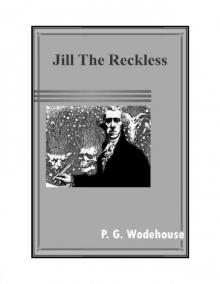 Jill the Reckless
Jill the Reckless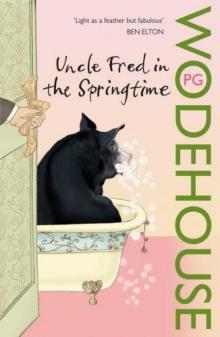 Uncle Fred in the Springtime
Uncle Fred in the Springtime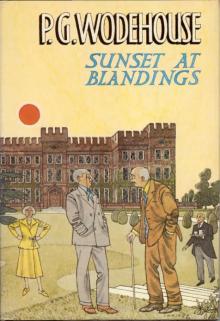 Sunset at Blandings
Sunset at Blandings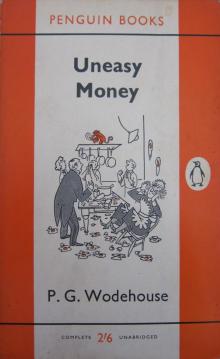 Uneasy Money
Uneasy Money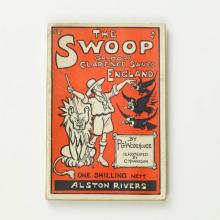 The Swoop! or, How Clarence Saved England: A Tale of the Great Invasion
The Swoop! or, How Clarence Saved England: A Tale of the Great Invasion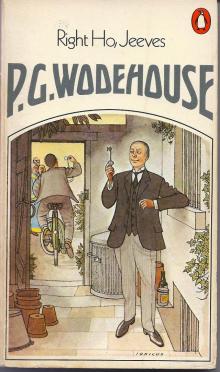 Right Ho, Jeeves
Right Ho, Jeeves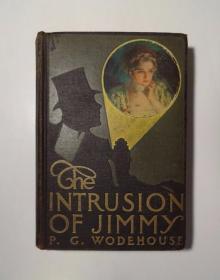 The Intrusion of Jimmy
The Intrusion of Jimmy The Jeeves Omnibus - Vol 1:
The Jeeves Omnibus - Vol 1: Aunts Aren't Gentlemen:
Aunts Aren't Gentlemen: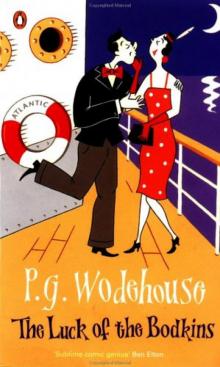 The Luck of the Bodkins
The Luck of the Bodkins The Little Nugget
The Little Nugget Money for Nothing
Money for Nothing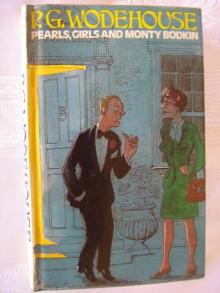 Pearls, Girls and Monty Bodkin
Pearls, Girls and Monty Bodkin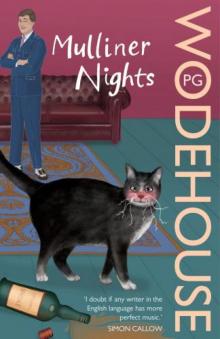 Mulliner Nights
Mulliner Nights Blandings Castle and Elsewhere
Blandings Castle and Elsewhere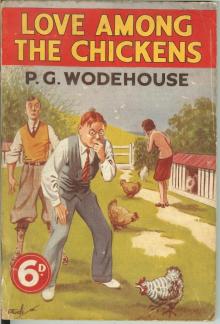 Love Among the Chickens
Love Among the Chickens Carry On, Jeeves!
Carry On, Jeeves!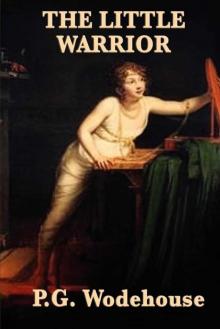 The Little Warrior
The Little Warrior Ice in the Bedroom
Ice in the Bedroom Leave It to Psmith
Leave It to Psmith Thank You, Jeeves:
Thank You, Jeeves: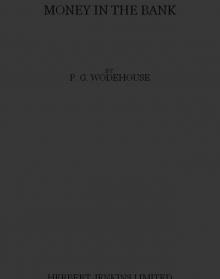 Money in the Bank
Money in the Bank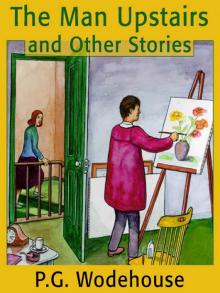 The Man Upstairs and Other Stories
The Man Upstairs and Other Stories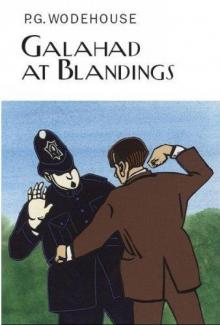 Galahad at Blandings
Galahad at Blandings The Jeeves Omnibus Vol. 5
The Jeeves Omnibus Vol. 5 Uncle Dynamite
Uncle Dynamite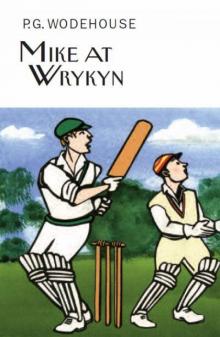 Mike at Wrykyn
Mike at Wrykyn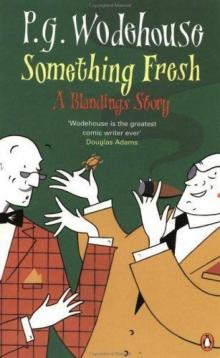 Something Fresh
Something Fresh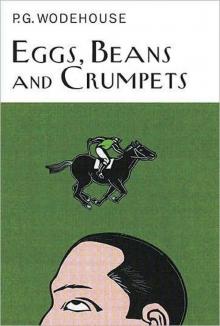 Eggs, Beans and Crumpets
Eggs, Beans and Crumpets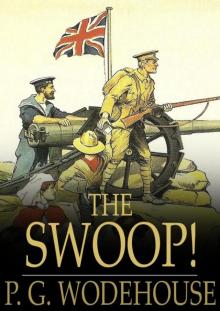 The Swoop: How Clarence Saved England (Forgotten Books)
The Swoop: How Clarence Saved England (Forgotten Books)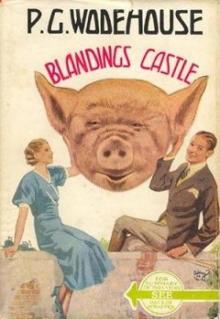 Blanding Castle Omnibus
Blanding Castle Omnibus Wodehouse at the Wicket: A Cricketing Anthology
Wodehouse at the Wicket: A Cricketing Anthology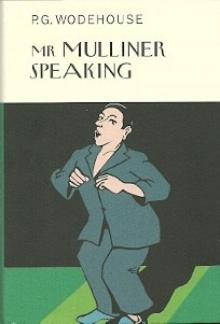 Mr. Mulliner Speaking
Mr. Mulliner Speaking Hot Water
Hot Water The Jeeves Omnibus - Vol 3: The Mating Season / Ring for Jeeves / Very Good, Jeeves
The Jeeves Omnibus - Vol 3: The Mating Season / Ring for Jeeves / Very Good, Jeeves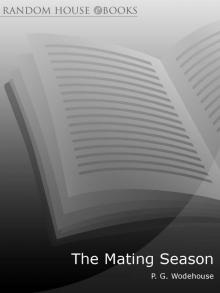 The Mating Season
The Mating Season Meet Mr. Mulliner
Meet Mr. Mulliner The Man with Two Left Feet, and Other Stories
The Man with Two Left Feet, and Other Stories Not George Washington — an Autobiographical Novel
Not George Washington — an Autobiographical Novel Young Men in Spats
Young Men in Spats The Jeeves Omnibus Vol. 4
The Jeeves Omnibus Vol. 4 A Pelican at Blandings:
A Pelican at Blandings: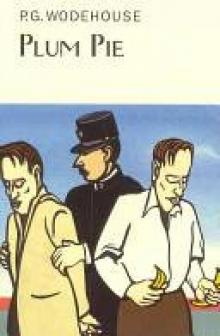 Plum Pie
Plum Pie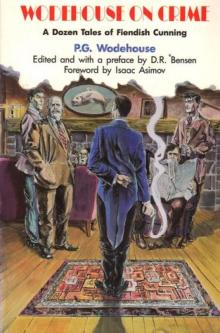 Wodehouse On Crime
Wodehouse On Crime The Jeeves Omnibus Vol. 2: Right Ho, Jeeves / Joy in the Morning / Carry On, Jeeves
The Jeeves Omnibus Vol. 2: Right Ho, Jeeves / Joy in the Morning / Carry On, Jeeves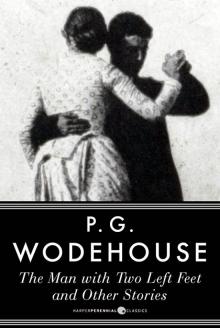 The Man With Two Left Feet
The Man With Two Left Feet Full Moon:
Full Moon: Jeeves and the Feudal Spirit:
Jeeves and the Feudal Spirit: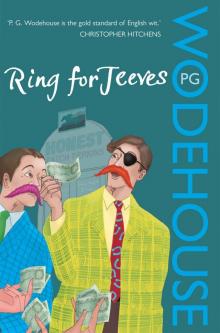 Ring For Jeeves
Ring For Jeeves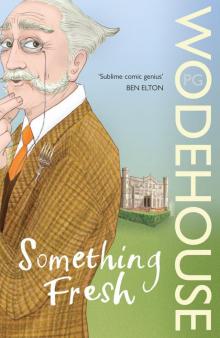 Something New
Something New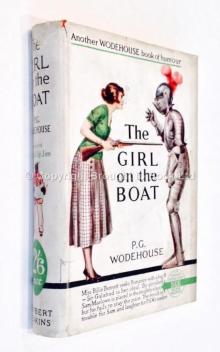 The Girl on the Boat
The Girl on the Boat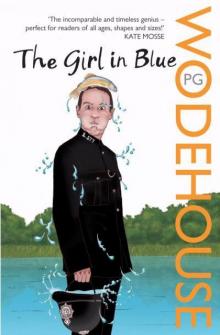 The Girl in Blue
The Girl in Blue Pigs Have Wings:
Pigs Have Wings: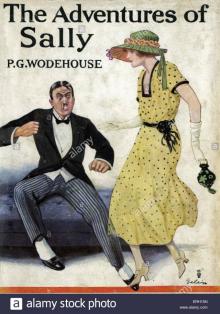 The Adventures of Sally
The Adventures of Sally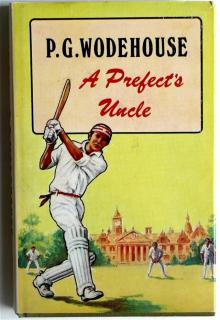 A Prefect's Uncle
A Prefect's Uncle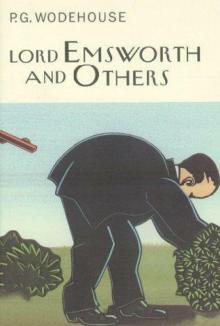 Lord Emsworth and Others
Lord Emsworth and Others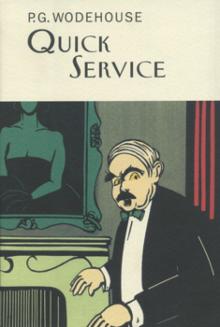 Quick Service
Quick Service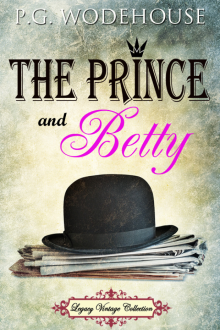 The Prince and Betty
The Prince and Betty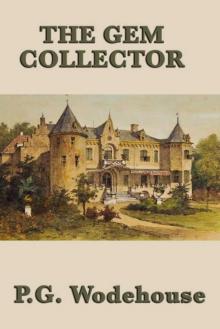 The Gem Collector
The Gem Collector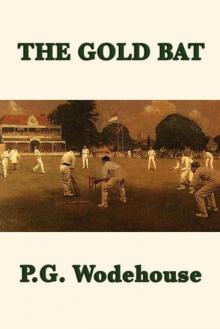 The Gold Bat
The Gold Bat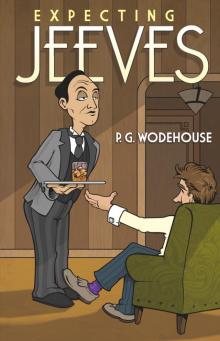 Expecting Jeeves
Expecting Jeeves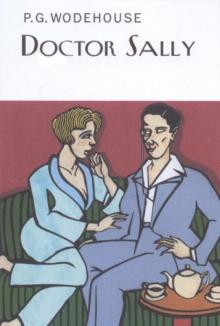 Doctor Sally
Doctor Sally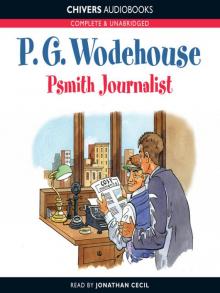 Psmith, Journalist
Psmith, Journalist The Golf Omnibus
The Golf Omnibus Heavy Weather
Heavy Weather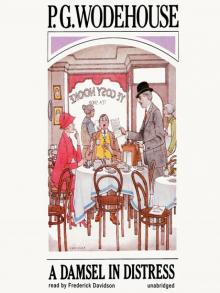 A Damsel in Distress
A Damsel in Distress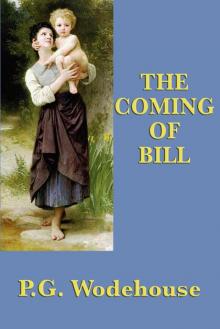 The Coming of Bill
The Coming of Bill Summer Lightning
Summer Lightning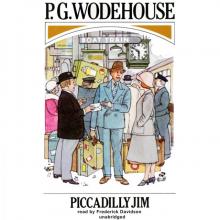 Piccadilly Jim
Piccadilly Jim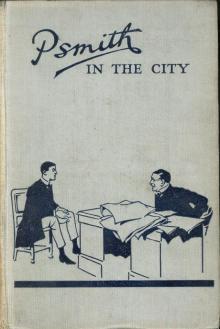 Psmith in the City
Psmith in the City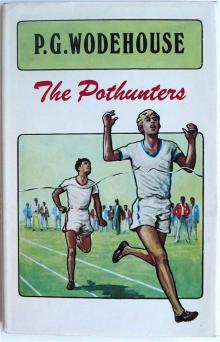 The Pothunters
The Pothunters Service With a Smile
Service With a Smile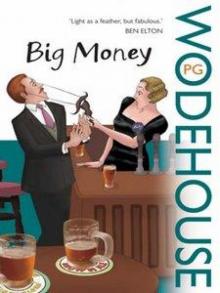 Big Money
Big Money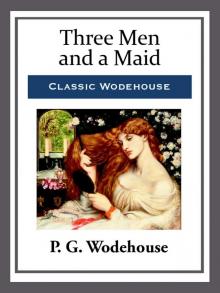 Three Men and a Maid
Three Men and a Maid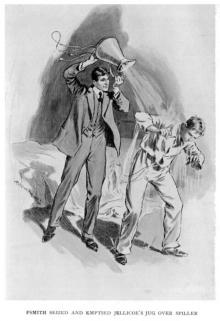 Mike and Psmith
Mike and Psmith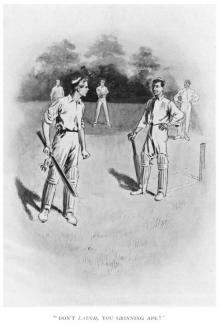 Mike
Mike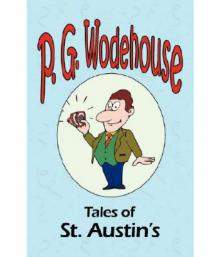 Tales of St. Austin's
Tales of St. Austin's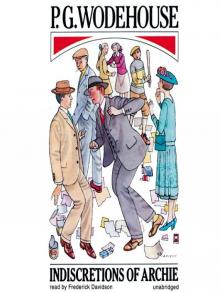 Indiscretions of Archie
Indiscretions of Archie Pigs Have Wings
Pigs Have Wings The Jeeves Omnibus - Vol 4: (Jeeves & Wooster): No.4
The Jeeves Omnibus - Vol 4: (Jeeves & Wooster): No.4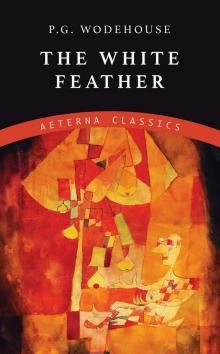 The White Feather
The White Feather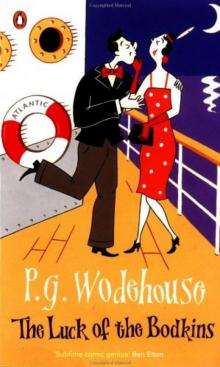 Luck of the Bodkins
Luck of the Bodkins THE SPRING SUIT
THE SPRING SUIT Full Moon
Full Moon Very Good, Jeeves
Very Good, Jeeves Thank You, Jeeves
Thank You, Jeeves Reginald's Record Knock.
Reginald's Record Knock. Wodehouse At the Wicket
Wodehouse At the Wicket LADIES AND GENTLEMEN V. PLAYERS
LADIES AND GENTLEMEN V. PLAYERS The Jeeves Omnibus - Vol 5: (Jeeves & Wooster)
The Jeeves Omnibus - Vol 5: (Jeeves & Wooster) The Jeeves Omnibus - Vol 1: (Jeeves & Wooster): No.1
The Jeeves Omnibus - Vol 1: (Jeeves & Wooster): No.1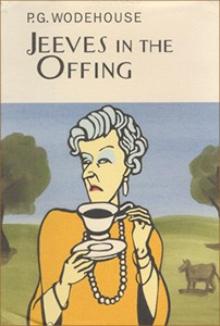 Jeeves in the offing jaw-12
Jeeves in the offing jaw-12